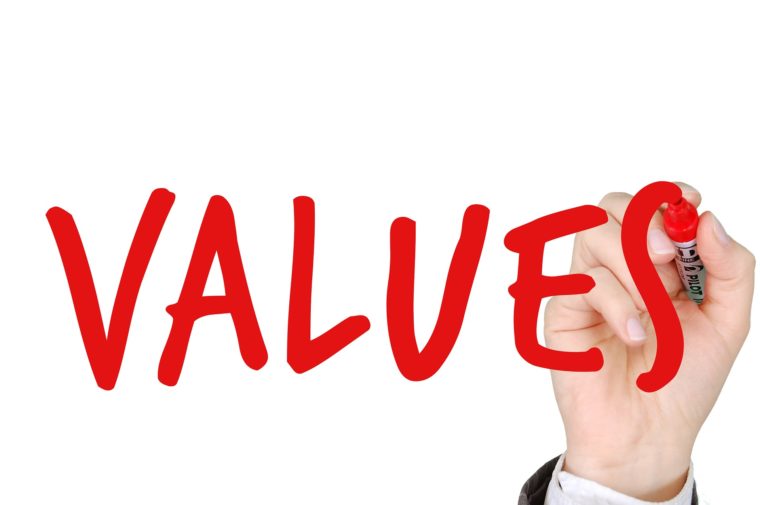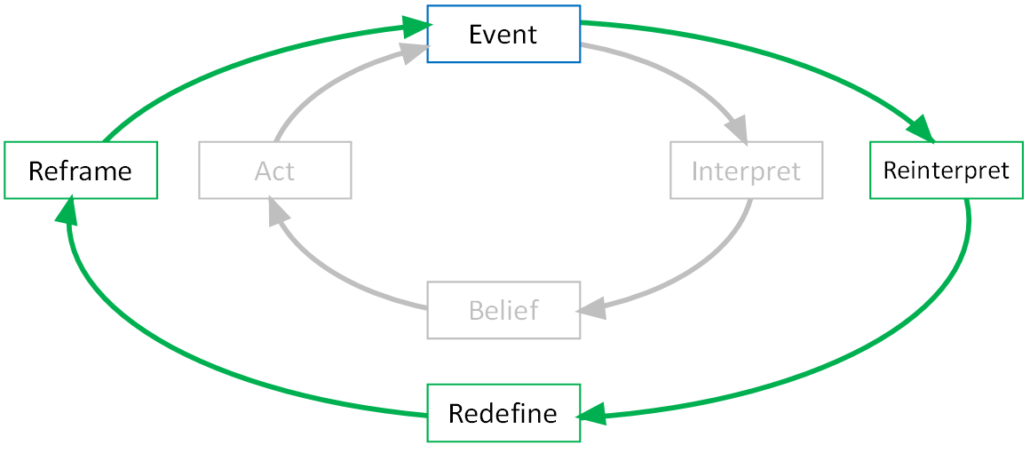A few months ago, I attended a key note by Marshall Eizenga where he explained that each of us holds value statements or value definitions in our minds. These value statements define how we think, act, react, and respond to the events around us. As such, value statements have a profound impact on our success and the success of the things (e.g., our businesses) and the people that we influence.

There is no one set of “correct” value statements. Rather, we are all products of our environments and our value statements are created throughout our life. They are a product of our experiences and our interpretations of these experiences. Each of us can experience the same thing but form completely unique value statements. These value statements can be either positive or negative.
Positive value statements can be very beneficial to us and the organizations that we lead. Negative value statements can be extremely damaging to us, our businesses, and the people that we influence.
For Example . . .
Take, for example, two people working in a start up business for a year or two only to have the start up fail miserably. One of these people may form the “value statement” that start ups are way too risky and they will never go down that path again. This is a very real and completely understandable negative perspective!
The other person forms a “value statement” that there are inherent risks with start ups and they take what they have learned and apply it successfully to launch a second start up. This is a very real and completely understandable positive perspective!
Neither value statement is necessarily right or wrong, but both have lasting impacts on the individuals involved and the people they influence.
This begs the question, how do we become more aware of our value statements and what can we do to change?
The Experience Wheel
Eizenga provides a model from Crest Leadership to help us understand our value statements and provide a methodology to consciously change our thought and behavior patterns.
He explained that when we experience something in life we typically form value statements through the following steps, illustrated as an Experience Wheel:
- Experience an event
- Interpret that event
- Form an opinion or a belief about the event
- We begin to act on that opinion or belief and apply it in other areas and events in our life
This event then tends to form a pattern of behavior or thought when we run into similar situations or events. These behaviors and thought patterns can make a tremendous impact in our lives without us even realizing it.
The good news is that we can change our value statements and resulting patterns of behavior! Every person, especially leaders, need to constantly examine their experience wheel and their thought patterns. We can do that through a process of:
- Experience the event
- Re-interpretation or re-evaluation of the event
- Redefinition of the resulting belief
- Reframing of the associated actions
This re-interpretation, redefinition, and reframing process requires deep, deliberate and reflective thought and then deliberate behavior change. It is not necessarily easy but it can be extremely rewarding!
Take Action
Set aside some time this week for some deep reflection. Identify any negative thought patterns or value statements that are playing in your life. What impact is this having in your life, family, or business? What are these negative thought patterns holding you back from achieving? What changes can you make to reinterpret, redefine, and reframe the thought pattern into something that is positive, productive, and energizing?
Go ahead and reframe these negative patterns and carefully observe how your behaviors are different and the impact that makes on yourself and your organization over the next few months.
Finally, take some time and review these related posts:
- How Strong Values Engage Employees and Increase Profits
- Here is a Method that is Helping Businesses Get Alignment on Organizational Values
- What Has Made Our Nations and Businesses Great
- 50 Powerful Leadership Lessons from Authentic Leaders
- Why You Need to Eliminate Your Single Point of Failure
“Values provide perspective in the best of times and the worst.” Charles Garfield
What value statement examples can you share that may add value to other readers? Leave your comments below!
We help leaders navigate marketplace complexities and build successful and lasting business legacies.
Call or email us today for more information or to book your free business assessment:
587-227-5179
info@thinkingbusinessblog.com
Be sure to download a free copy of my new Ebook: 12 Steps to Business Transformation and to sign up at www.thinkingbusinessblog.com for weekly blog updates delivered to your inbox.



Please note: I reserve the right to delete comments that are offensive or off-topic.